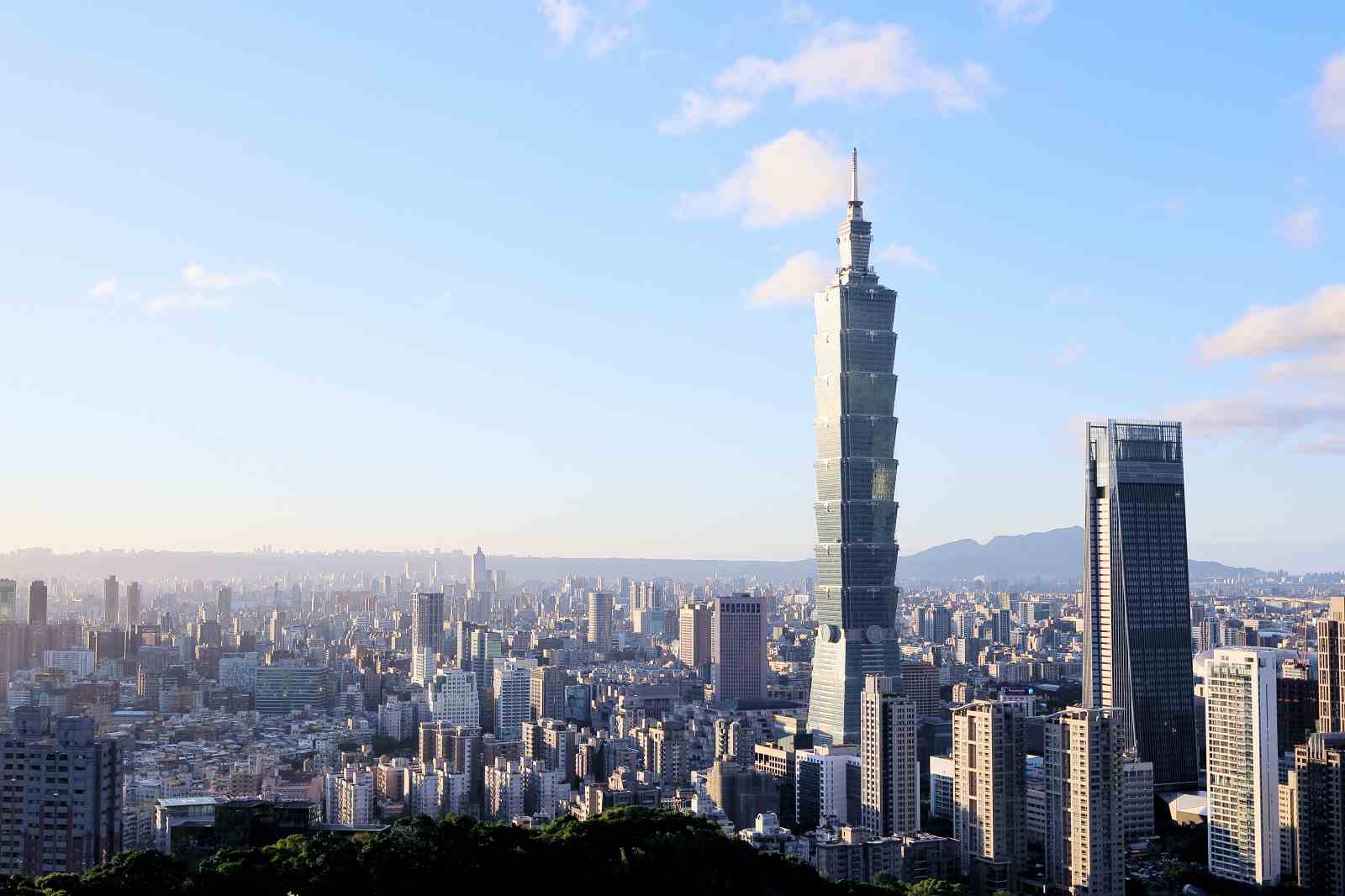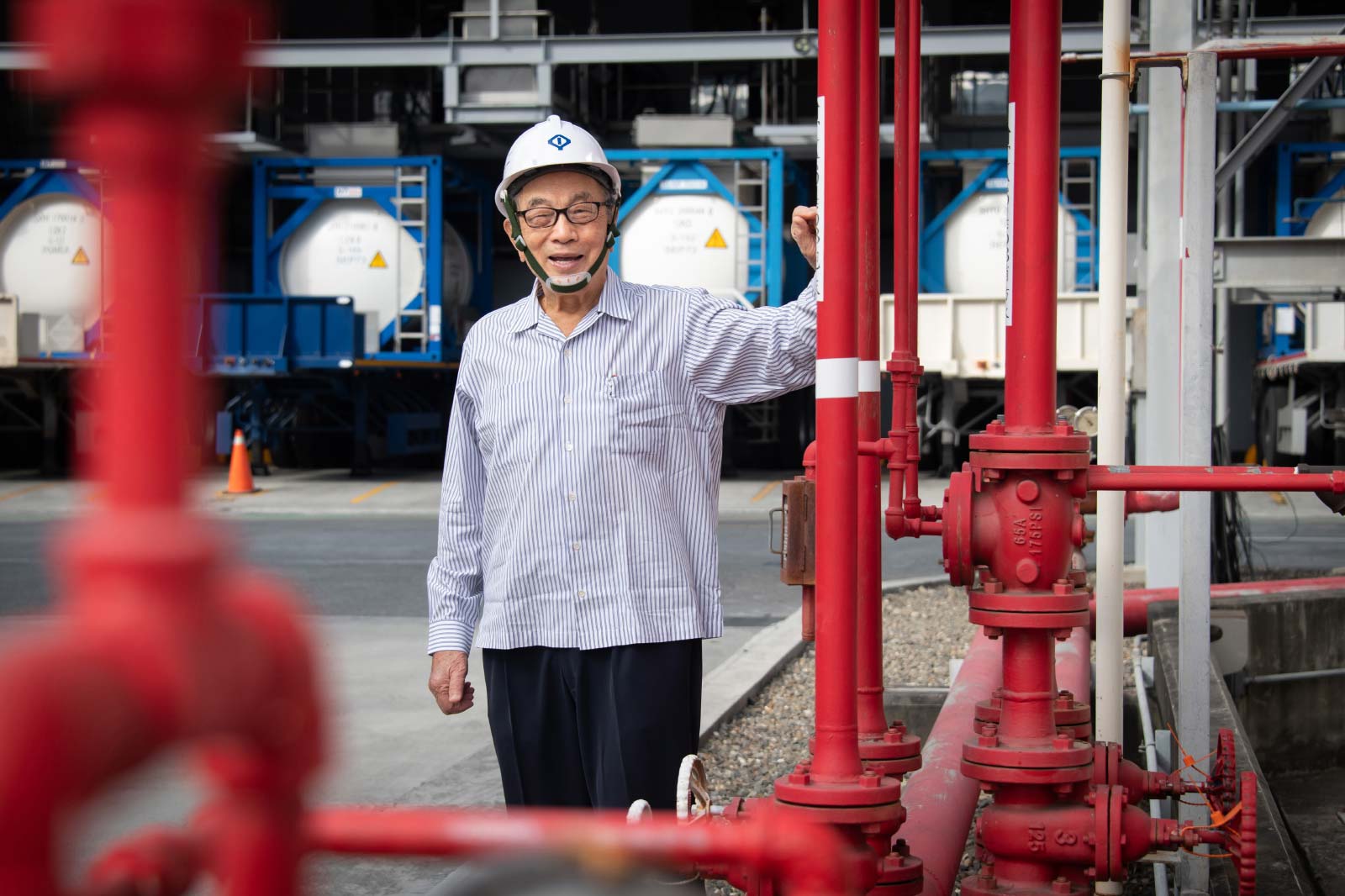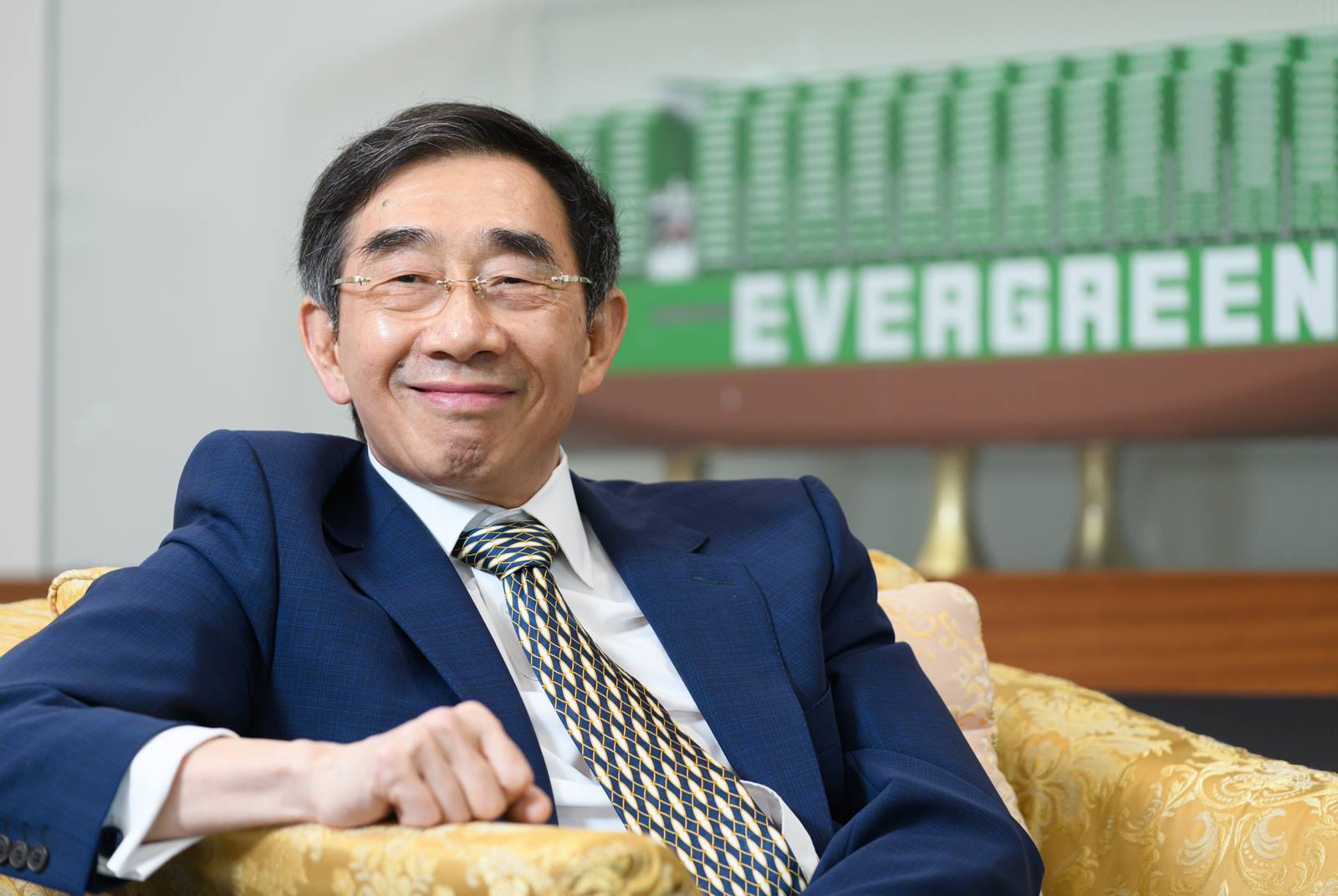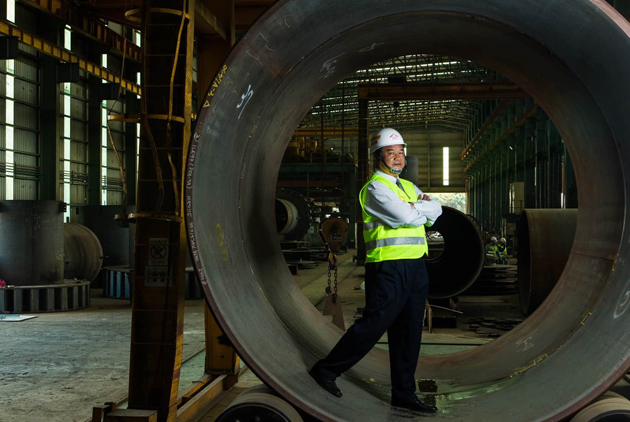Taoyuan Mayor Cheng Wen-tsan
Forging a New Leadership Model

Source:Chieh-Ying Chiu
Taoyuan Mayor Cheng Wen-tsan was a surprise winner of his city’s mayoral election in 2014, and he has continued to surprise in office, showing diligence and savvy in building a positive image among city residents and delivering results.
Views
Forging a New Leadership Model
By Jimmy HsiungFrom CommonWealth Magazine (vol. 631 )
5 a.m. on Aug. 26. The sun has yet to rise, but Taoyuan Mayor Cheng Wen-tsan is already out the door, beginning his day’s activities.
On this day, his first stop is the Taoyuan Happy Run, the second major road running event in the city during the month. After making remarks before more than 5,000 participants and firing the starting gun, Cheng immediately moves on to his next appointment – welcoming Kagawa Prefecture Governor Keizo Hamada.
But he has little time to chat with his old Japanese friend as he quickly changes outfits, exchanging his running shoes for a chef’s uniform to join with Hamada in hosting a friendly “Udon” vs. “Hakka Mishaimu” (thick rice noodles) competition.
Though Cheng talks up Taoyuan’s culinary specialties, he does not have a chance to sample them, his aides rushing him back to City Hall for a press conference to promote the Taoyuan finals of the “2017 Six Cities e-Games Showdown.” He then motors straight to the city’s Longtan District to listen to a briefing on the scenic Longtan Lake renovation and water purification project.
The day before, he had just been in the district to announce the formal launch there of bike rental service YouBike, and now he is back under a scorching sun telling local residents how he intends to solve the area’s water quality issues.
Cheng’s race around the city, attending one event after another, is a daily occurrence. “From five in the morning to 12 at night, Cheng Wen-tsan goes around the city with everything he has, leaving himself only four hours of sleep a night,” says a friend in Cheng’s Democratic Progressive Party (DPP) who heads a local government in southern Taiwan.
That constant exposure has already paid dividends. In CommonWealth Magazine’s 2017 Local Leader Approval Survey, Cheng ranked fourth among the chiefs of Taiwan’s 22 cities and counties. He also became the first Taoyuan mayor to receive the highest rating of any of the mayors of Taiwan’s six major metropolitan areas (Taipei, New Taipei, Taoyuan, Taichung, Tainan and Kaohsiung).
It was just over two years ago, on Nov. 29, 2014, that Cheng pulled off an upset by narrowly winning the Taoyuan mayoral election with 51 percent of the vote. Today, his approval rating has soared to 81.3 percent.
That progress cannot be solely attributed to “just four hours of sleep” a night.
‘Diligence’ + ‘Skill’
“The public was surprised I got elected, and they are surprised by how I’ve governed,” says Cheng, who has sustained the spirit of his surprising journey but seems as though he expected his approval numbers to rise.
In fact, Cheng is the only chief of Taiwan’s six big cities to have served as an elected representative in local government, an experience that has benefited him in his current job. He served in the Taoyuan County Council (when Taoyuan was still a county) 20 years ago, and he has pondered countless times since then how to be a good local government leader.
“You have to have stamina and the ability to resist pressure and temptations. Then you have to get over resentment and criticism,” he says, before emphasizing: “My performance is my only indicator.”
With clear goals established, what came next was how to execute them, and Cheng has been guided by two words: “diligence” and “skill.”
CommonWealth conducted a “City Happiness” survey in conjunction with the “Local Leader Approval Survey,” and each city had a panel of experts from all walks of life, from business owners to ward chiefs, provide input. The catchwords most commonly used by the Taoyuan experts to describe Cheng were “close to the people” and “diligent.”
“If you invite him, he will participate,” says a social worker with an autism foundation in the city, pointing to behavior rarely seen from Taoyuan leaders in the past.
“I’ve not only visited all 495 wards in Taoyuan, but I can also name every ward chief,” boasts Cheng with a sense of accomplishment. He says he is forging a new model of a “direct marketing mayor” who takes advantage of every opportunity he can to come in direct contact with the people.
But it’s not just that relentless public relations campaign that has won the support of Taoyuan residents; Cheng has also showed “skill” in addressing real issues.
In terms of city infrastructure, Cheng has solved several problems that previous administrations could not or were unwilling to deal with. One example is the Wanshou Rd. overpass near Taoyuan Arena. The overpass lost its reason for being five years ago when the Taoyuan-Linkou rail line ended operations, but because it would have cost the city NT$600 million to expropriate the privately-held land under the bridge, no action was taken to dismantle the structure.
After taking office, Cheng worked with the land’s owner and devised a plan to transfer the amount of floor space the owner had the right to build on his land at the Guishan District site to a more favorable location in the city’s downtown area, resolving a lingering eyesore.
“Most mayors generally focus on large infrastructure projects,” Cheng says, but he believes that finding ways to deal with smaller-scale infrastructure issues resonates more with local residents.
Taiwan Environmental Protection Union secretary-general Chen Bing-heng observes that nearly 30 ponds in Taoyuan have been turned into eco-parks since Cheng has taken office and have even been equipped with solar panels, giving people the sense that this industrial city is making an effort to get greener.
It can normally cost NT$500 million to NT$1 billion to build a big city park, but Cheng joined with the Taoyuan Irrigation Association to revive idle land and give birth economically to several small but pleasant public spaces.
Getting Along with the Council
The success of Cheng’s measured approach is also reflected in the harmonious relations between the city government and city council. People in Taoyuan often recite the rumor that the council once just need eight minutes to complete a review of the city’s budget. That’s why Taipei Mayor Ko Wen-je said previously that what he most admires about Cheng has been his ability to build a solid relationship between his administration and the city council.
“As a leader, you want to build rather than fight,” says Cheng in response to a question about his ties with the city council, though he denies with a laugh the “eight-minute” rumor, stressing that it ignored all the time spent in previous consultations. But he argues that local governments cannot resort to political partisanship, saying that “if the mayor is good, the councilors will be good” – a lesson in harmonious relations he picked up when he served as a county councilor.
With many local DPP leaders who have been accorded god-like status set to complete their terms soon or move on to central government posts, attention is now turning to whether Cheng, who is highly valued by President Tsai Ing-wen, can achieve similar status? That will in part be determined late next year, when people will be watching to see the extent to which his high approval ratings are converted into votes as he runs for re-election.
Translated from the Chinese by Luke Sabatier






